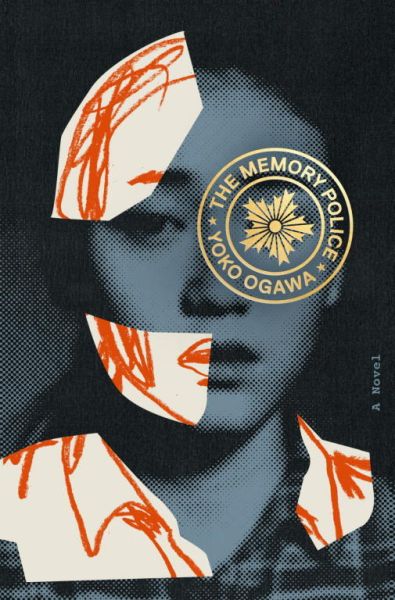Gray Fog
The Memory Police
By Yoko Ogawa

16 Jun, 2021
Yoko Ogawa’s 1994 dystopic The Memory Police: A Novel was originally published under the title Hisoyaka na kesshō. The 2019 translation is by Stephen Snyder.
Life on the island is a process of slow erosion, as memory after memory is stripped from the inhabitants. Escape is impossible; among the memories lost is any recollection of seafaring.
A minority are seemingly immune to this process. No worries! Where there is some natural immunity, the Memory Police intervene without fail or mercy.
Memory may be the wrong word. Better to say entire concepts are lost, as well as any ability to experience the phenomena associated with the concept. Even if the island’s inhabitants were not in habit of discarding or destroying objects whose memories are erased, they can no longer perceive perfume’s smell, the aroma of roses, or the sound of bird song. This permits the islanders to focus on the memories they do have left, for as long as they have them.
Those unhappy few who resist the effect may expect summons, or in extreme cases, midnight detainment. Nonconformists vanish, removed to secret facilities whose nature is the subject of worried rumour. The narrator’s own mother was disappeared by the Memory Police. Soon afterward there’s an unverifiable news item, claiming that the mother died of natural causes. Perhaps …
The unnamed narrator is a curiosity, a novelist on an island where most people have little interest in literature. Nevertheless, she does well enough to keep herself fed and housed. While it is true that literacy goes against the spirit of the slow erosion of memory, she is as vulnerable to the effect as any other islander. Thus far she has escaped the close scrutiny of the Memory Police.
Her editor, R, is not so lucky. He has retained concepts lost to others, which has attracted the attention of the Memory Police. When R receives a summons demanding he turn himself in, the narrator acts. A hidden crawl space in her home is transformed into a priest’s hole. R has his refuge, for however long it takes the Memory Police to track him down.
Or for as long as it takes the effect to erase the island inhabitants in toto.
~oOo~
Readers may wonder exactly what process could remove concepts before progressing to erasing entire body parts, and how it manages the latter without killing people. They may also wonder why the Memory Police are so set on enforcing collective amnesia. Let me assure you that none of these questions are ever directly answered. As the effect itself? Why and how are mysteries. Even indirect hints are withheld. If you need an explanation, you will need to provide it yourself.
There are many entirely plausible reasons why the Memory Police act as they do, not least of which is that ruthlessly re-enforcing a pointless and destructive process provides them with considerable power. They can requisition and domineer right up until the moment that everyone becomes disembodied voices.
It’s also best to put aside any expectation that resistance will be successful, save on a very personal level. The writer may shield R, at least for a while, but the writer’s not going to overthrow the Memory Police. The writer will not even try.
The effect is a detached, dreamlike exploration of loss and state oppression. Although the characters themselves are rather thin, Ogawa evocatively paints this claustrophobic island. The result is a brief glimpse of a nightmarish world.
The Memory Policeis available here (Amazon US), here (Amazon Canada), here (Amazon UK), here (Barnes & Noble), here (Book Depository), and here (Chapters-Indigo).
